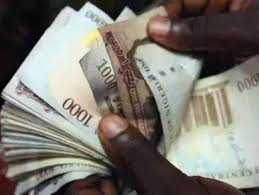The International Monetary Fund (IMF) has commended the Central Bank of Nigeria for increasing interest rates, saying Nigeria’s currency, the naira is now showing signs of stability.
The IMF stated this in its global financial stability report launched during a press briefing in Washington DC on Tuesday.
According to the IMF, the sign of stability shown by the Naira is due to recent interest rate hikes and the clearing of foreign exchange backlogs by the CBN.
“In Nigeria, rate hikes and the clearing of overdue domestic central bank foreign exchange obligations have helped the naira show more signs of stability,” the IMF stated in its report.
The multilateral’s position comes amid push backs from stakeholders on certain monetary policy decisions of the central bank.
The CBN, since Olayemi Cardoso took over as its governor, has raised the interest rate multiple times to curb a raging inflation in the country.
In the latest hike on September 24, the apex bank’s monetary policy committee (MPC) increased the interest rate by 50 basis points to 27.25 percent.
The rate increase was immediately criticised by the Manufacturers Association of Nigeria (MAN) and the Lagos Chamber of Commerce and Industry (LCCI).
While the MAN said the policy would negatively impact the manufacturing sector, the LCCI argued that the expansion and sustainability of businesses would be hampered.
Tobias Adrian, the IMF’s financial counsellor and director of monetary and capital markets, while speaking at the conference, acknowledged the efforts of the CBN in controlling inflation and stabilising the foreign exchange market.
“The central bank has been transitioning to an inflation-targeting regime and has liberalised the exchange rate, which we welcome,” he said.
“The rate hikes implemented so far have been appropriate, especially given the challenges posed by high inflation, which still stands around 30 percent.”
Meanwhile, despite the recent gains in naira stability, the currency has struggled in 2024.
OBSERVERSTIMES recall that on October 16, the World Bank reported that the naira remains one of the worst-performing currencies in sub-Saharan Africa.


